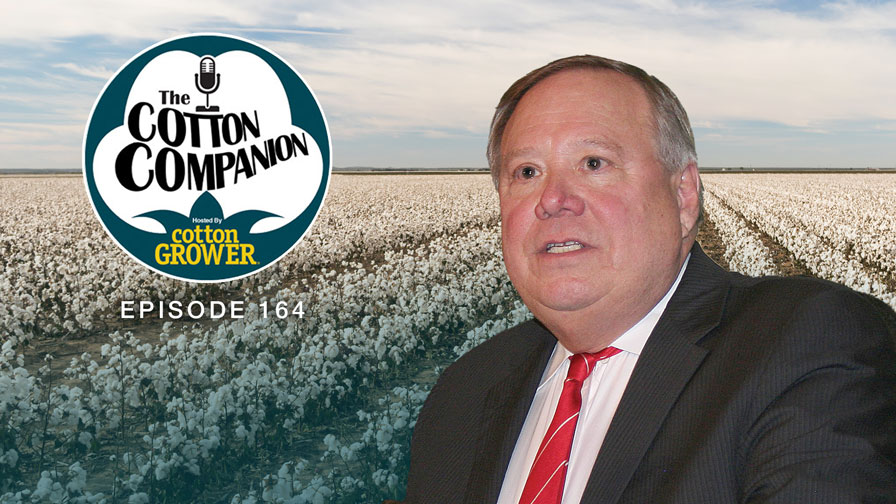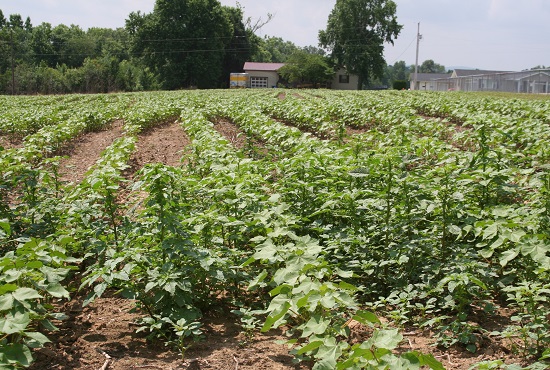Partnership for Sustainable Textiles Recognizes U.S. Cotton Trust Protocol as a Sustainable Cotton Standard
The U.S. Cotton Trust Protocol has been approved as a standard for sustainable cotton by Siegelklarheit, an initiative of the German Federal Government, clearing the Trust Protocol for use by members of the Partnership for Sustainable Textiles (PST) to calculate their share of sustainable cotton.
The Partnership for Sustainable Textiles was founded in October 2014 to help improve social and ecological conditions within global textile supply chains. The Textiles Partnership orientates its work on the OECD Due Diligence Guidance and on international agreements and guidelines that define the principles of social, environmental, and economic sustainability and the framework for corporate responsibility.
“Members of the Partnership for Sustainable Textiles work together to achieve substantial social and ecological improvements in their global supply chains,” said Jürgen Janssen, head of the PST secretariat. “This also includes the production of raw materials and thus the cultivation and processing of cotton. In the Textiles Partnership, we advocate for transparent and traceable criteria in the certification of sustainable cotton. We are pleased that the Trust Protocol has successfully passed the Siegelklarheit audit.”
The U.S. Cotton Trust Protocol provides quantifiable, verifiable goals, and measurement and drives continuous improvement in six key sustainability metrics – land use, soil carbon, water management, soil loss, greenhouse gas emissions, and energy efficiency. It is also the world’s first sustainable cotton fiber to offer its members article-level supply chain transparency through the Protocol Consumption Management Solution.
“We are thrilled to have received this recognition of being a sustainable cotton standard by the Partnership for Sustainable Textiles and proud to have passed Siegelklarheit’s rigorous assessment,” said Dr. Gary Adams, President of the Trust Protocol. “The Trust Protocol’s vision is to set a new standard in sustainable cotton production where full transparency is a reality and continuous improvement to reduce our environmental footprint is the central goal. We commit to ensuring the protection and preservation of the planet, using the most sustainable and responsible techniques.”
Using PST’s implementation framework and reporting format for corporate due diligence, member companies also indicate how much cotton they source and how much of it is sustainable or organic cotton, certified by recognized standards. In addition to the U.S. Cotton Trust Protocol, these standards include:
- Better Cotton
- Australian myBMP
- Cotton Made in Africa
- Fairtrade Cotton
- CottonConnect.
Standards for purchasing of organic cotton include:
- Global Organic Textile Standard (GOTS)
- International Association of Natural Textile Industry (NATURTEXTIL IVN)
- Textile Exchange Organic Content Standard (OCS)
- bioRe Social & Environmental Standard
- All organic standards forming part of the IFOAM Family of Standards.
The U.S. Cotton Trust Protocol is aligned with the UN Sustainable Development Goals, recognized by Textile Exchange and Forum for the Future, and part of the Sustainable Apparel Coalition, Cotton 2025 Sustainable Cotton Challenge, Cotton 2040, and Cotton Up initiatives. It has also been recognized and published in the ITC Standards Map.
To learn more about the U.S. Cotton Trust Protocol visit TrustUSCotton.org.
Based on information provided by the U.S. Cotton Trust Protocol








